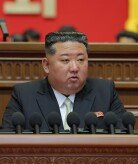[Arguments] Battle for Aborigines
[Arguments] Battle for Aborigines
Posted May. 14, 2001 09:45,
Rubber tree was a wild plant originally growing in the Amazon area of Brazil. It was considered routine that Brazil produced 98 percent of natural rubber until the early 20th century. The situation has changed when the need of natural rubber increased and therefore plantation of the rubber trees became necessary. The seeds of the rubber tree were carried out of Brazil to foreign countries despite the Brazil government`s blockage. As a result, Malaysia and Indonesia started planting rubber trees in their territories and finally become producers of 95 percent of total world rubber production. What would Brazil think about this?
This is a well known episode, which is often quoted to emphasize the necessity of biological resource protection. Korea also have some stories related to the biological resource protection. Miss Kim lilac, which holds 30 percent of the US lilac market, is adapted from North Korean Chunghyang tree. Europeans have produced a variety of day lilies from Korean aboriginal day lilies. And Korean fir became famous for its Christmas tree. The anti-dwarf-element of wheat, which originated in Korean indigenous `cripple wheat (An-zeun-beng-i),` made the green revolution possible.
Korean wild plants and native species have been exported to other countries since the end of 19th century. The US in particular has collected and preserved many Korean native species which are neither growing nor planted in Korea any more. It is tantalizing but also understandable why the US has been so eager to collect and preserved genetic resources. The best selling anticancer drug Taxol was developed from an element extracted from yew trees. Aspirin is made by the chemical composition of materials from willows. Biological genetic resources generate tremendously high value-added products.
Korea last year decided to strictly prohibit the carrying-out of 11 species of fishes and 190 species of plants, which are in danger of extinction, to foreign countries. Recently, the sweet fishes and ggeokji (Coreoperca kawamebari) returned to Han river after they had disappeared for 42 years. It signals the recovery of the Han river`s ecosystem. However, many aboriginal fishes such as swiri have not yet returned and the foreign basses or blue turtles are still widespread. It is really a matter of regret that Korea have not even protected nation`s aboriginal species while many other advance countries have already regarded the development of biological resources as a strategic industry.






![한그릇 1만5000원 봄동비빔밥 ‘품절’…제2의 두쫀쿠?[요즘소비]](https://dimg.donga.com/c/138/175/90/1/wps/NEWS/IMAGE/2026/02/27/133437451.3.jpg)
